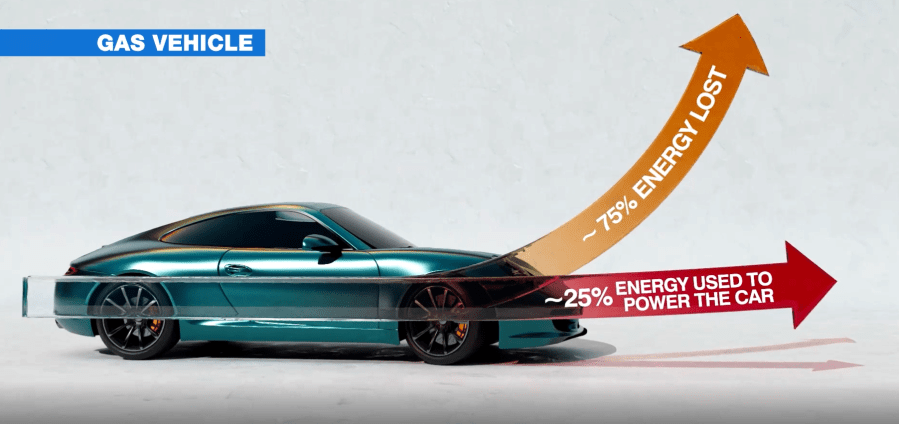TAMPA, Fla. (WFLA) — Sales of electric vehicles are accelerating rapidly in the US – making up 5.8% of the new car market in 2022 – nearly doubling from 2021. But as EVs get more popular, so does misinformation about their impact on climate change.
In fact, the number one electric vehicle myth on EPA’s website is that electric vehicles are worse for the climate than gasoline cars. WFLA’s Climate Specialist Jeff Berardelli spoke to Dr. Greg Keoleian, a professor of sustainability at the University of Michigan to clear up any misconceptions.
“Is it true that EVs produce as many emissions as gas-powered vehicles?”, asked Berardelli. “That myth is not true,” Keoleian responded.
Keoleian would know. His team, along with some colleagues at Ford, recently compared cradle-to-grave emissions in gas versus electric vehicles in a comprehensive study evaluating emissions associated with manufacturing, operating and retiring the vehicle.
Turns out, the manufacturing of EVs produces about twice as many emissions as their gas counterparts due to the large batteries, both the mining of minerals and fabrication.
But Keoleain says, that’s where the advantage ends.
“Sedans, SUVs and pickups had approximately 57% lower life-cycle emissions with the EVs compared to the gas-powered vehicles across the country, on average,” Keoleain explained.
For electric pickups, that’s the emissions equivalent of not burning 6,000 gallons of gas over the lifetime of the truck. But it depends on the carbon intensity of the electric grid where you plug your car in.
Along the East and West Coasts, the emissions savings from EVs is larger. But the drop is much less in places like the Ohio Valley where coal feeds the electricity grid, releasing more emissions.

But the bigger factor is vehicle efficiency.
“The electric vehicles are much more efficient. The electric motor is much more efficient in converting the electricity to drive the wheels,” Keoleain said.
According to the U.S. Department of Energy, in gas-powered cars, only around 25% of the energy from the gas goes to power the car, with around 75% of the energy is lost.

Compare that with electric vehicles, where approximately 90% of the electric goes into powering the car, with very little waste.

Keoleian says EVs will only get cleaner in the future, “With the electric vehicles the batteries are going to get more efficient, and the grid is also decarbonizing, so the advantage is even going to increase over time.”
The electric vehicle market is exploding. There are now over 60 EVs on the market in the U.S. and by next year that’s expected to more than double. Ford is targeting 50% EV sales by 2030 and GM plans for all new cars to be electric by 2035.






